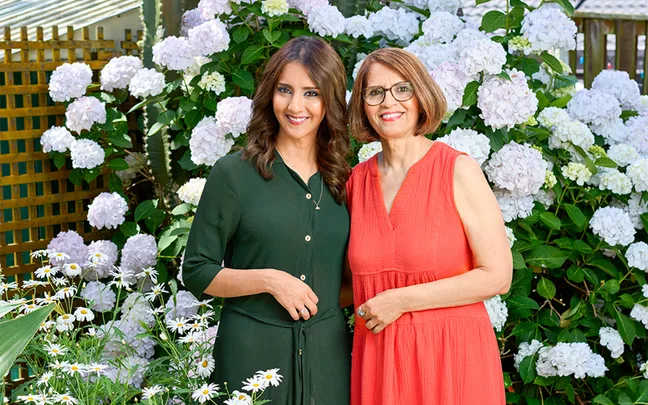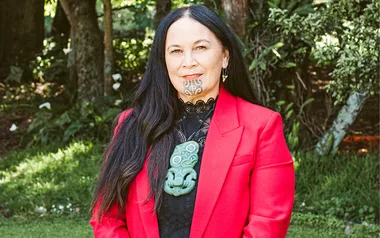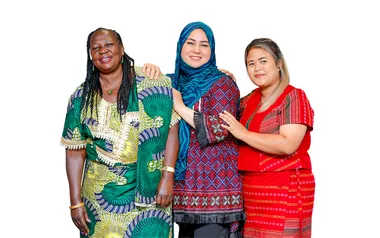It’s been 33 years since Green MP Golriz Ghahraman first arrived in New Zealand as a nine-year-old seeking asylum with her parents.
A lot has happened since then, including a master’s degree from Oxford, 12 years working as a human rights lawyer in Africa, The Hague and Cambodia, and Golriz being the first refugee in Aotearoa to be elected to Parliament.
But back in her homeland of Iran, women and girls are still facing severe restrictions to their quality of life, and increasing safety threats.
In September last year, 22-year-old Mahsa Amini died after being taken into custody by the “morality police” for donning skinny jeans and wearing her hijab incorrectly.
Nationwide protests sparked international attention and as brave Iranians continue to risk their lives protesting, Golriz and her mum Maryam Ghafoori sat down to talk to the Weekly.
“The first thing I do every morning is read the news in Iran and I’ve cried every day since learning about Mahsa,” shares Maryam, 67. “There’s so much bloodshed and killing. It’s really dangerous.”
For Golriz, action was the antidote as her thoughts instantly turned to how she could use her influence as an MP, and the Party’s foreign affairs and human right’s spokesperson, to help.
“My immediate reaction was, ‘What can I do?’ It felt different than protests in the past. Just their courage. I can’t really express how exhilarating it is to see young women on the streets without their hijab,” shares Golriz, 42, who’s been grateful for support from fellow Kiwis. “On a personal level, it’s been a balm on the wound to be in New Zealand, in particular while this is happening, because there’s such a strong feminist tradition and people care about women’s issues and rights.”
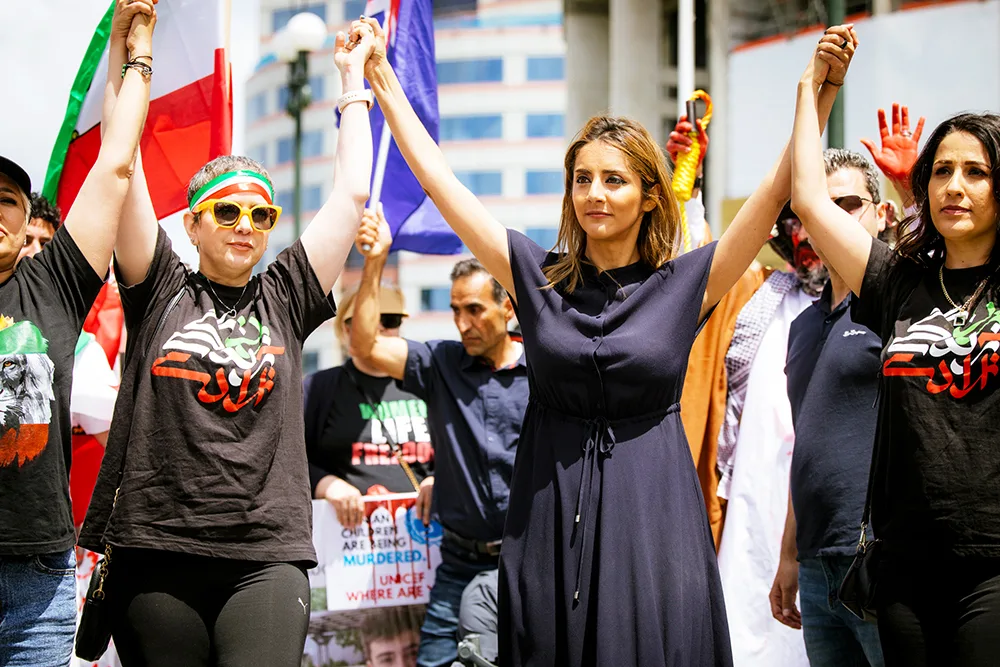
Golriz protesting for freedom in Iran outside Parliament in 2022.
While Maryam and Golriz are grateful for the safety of Aotearoa, watching from afar brings back lots of memories.
Iranian women have been required to wear the hijab in public since the 1979 Islamic Revolution, but in August 2022, more enforceable restrictions were added to the country’s dress-code law.
“I remember as a child watching my mother carefully check her hair was covered before leaving the house,” recalls Golriz.
“There would be little identifiers like wearing lipstick, but also the fear and intimidation that authorities can walk up to you at any point and you can disappear.”
There have been times, so far away from family and friends, that Maryam has felt helpless. But she takes solace in being active online, sharing information and hope on social media.
“The internet might only come on for an hour a day in Iran, but you see Iranians look at your [social media] post. I’m just breathless when I realise that people are reading it, commenting on the videos I post, saying, ‘Thanks for not leaving us alone.'”
Maryam was a psychologist, but fleeing Iran with Golriz and her then-husband Behrooz, who was an engineer, meant leaving behind everything, including their loved ones and career aspirations.
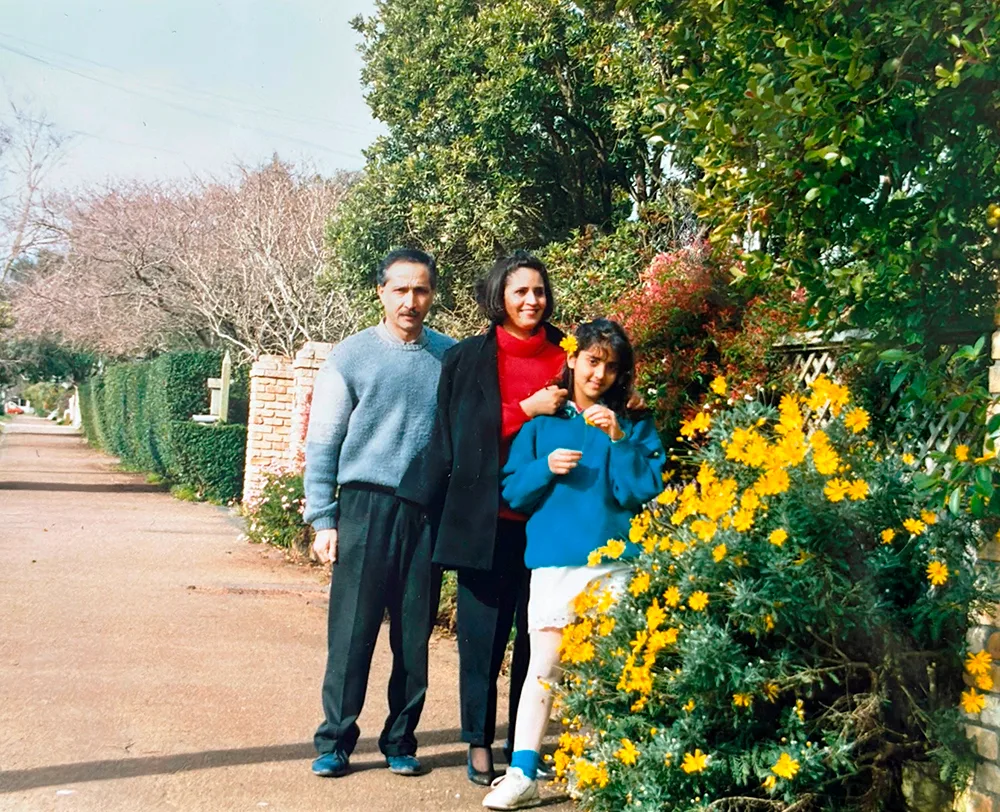
A new start in Aotearoa with dad Behrooz and Maryam.
Reflecting on her journey, starting from scratch in a foreign country where she didn’t speak the language, Maryam, who has worked in hospitality and retail since, is proud of her success.
“There is a path for each of us and my path was to learn my lesson this way,” she says. “I learned so much about myself, and through all these difficulties that I can make it and do anything.”
Golriz continues, “It’s worth it for me, but I didn’t lose as much. People are quite often like, ‘Thank you for being so brave and speaking up,’ but it’s always in the back of my mind that I have nothing to lose compared to people still in Iran. We didn’t have democracy in Iran, so to come here and be silent, and not try and affect change, is unthinkable to me.”
It’s a lot to be constantly campaigning for others and with a 2018 diagnosis of multiple sclerosis, Golriz has learnt she has to be firm with personal boundaries too.
“I have to be able to relax and sleep or the disability will take over my life, so I’ve learnt to shut off before bed,” she shares. “I need friends to cook with, my cat and my humans that know me or I can’t go on.”
For Maryam, putting down her phone and getting in the garden is her go-to coping mechanism, and one day she’d like to share her experiences and what she’s learnt from Kiwis in a book.
They’ve overcome so much already and continue to support each other through the ongoing challenges but smiling at her daughter, Maryam knows it’s all been worth it.
“I love this country and I am so grateful for that and excited to be part of this society. There’s no doubt it was a great decision to come here,” she says proudly.
“We are loyal to New Zealand but loyal to our original home too, and we will never forget about that.”
